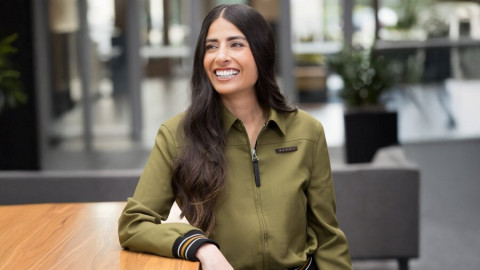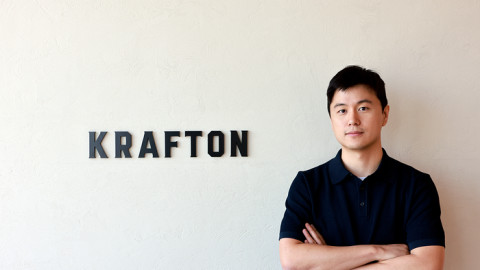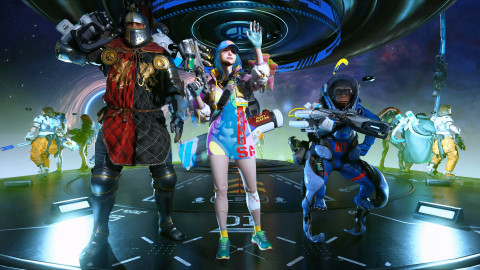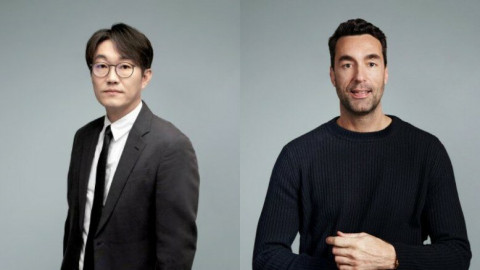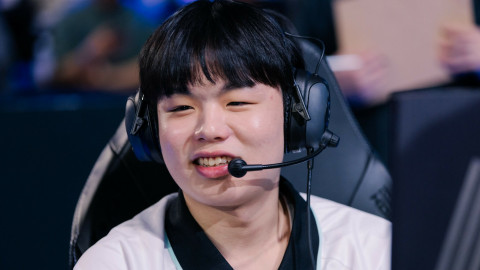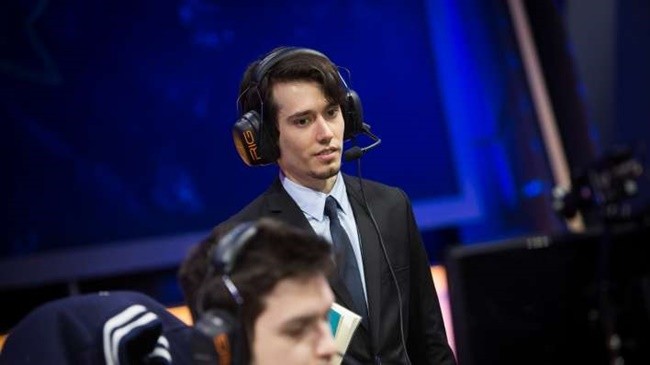
A good mentor never forces learning upon his students but instead encourages and inspires them. Likewise, good coaches will seek to support and inspire their players instead of forcing them onward and pressing them to follow orders. Or at least, that’s how I felt after this interview. The impression I got from Neil Hammad was that he was a warm-hearted and supportive coach who strives to inspire his players, and really be there for them. Neil Hammad (PR0LLY) is currently the head coach for 100 Thieves, the NA LCS team that has been doing great in the Spring Season. He was respectfully a former pro gamer himself, a mid laner for compLexity.Black, and later became head coach for H2k-Gaming.
We had the opportunity to learn about his insight coaching philosophies- from his opinion on what the role of a coach is to the different coaching styles of the west and the east.
While we were watching your broadcast interview, we were very fascinated by your responses such as how your approach as a coach is or your goals in the future. We’d like to ask follow-up questions regarding the broadcast interview: what do you think is the basis of a coach, like what is a coach’s role?
I think it is to get everyone’s understanding of the basics really correct and in sync with each other, which includes communication, basic strategy, and discipline as well. I think this is fundamental for the game. Everything outside of that is just kind of a plus. I think figuring out how to do specific drafts and stuff is good, but not required. Getting five players to think as one through learning all the basics is the primary goal of a coach.
Out of all the things you've just told us, what would you rank as the most important?
I would rank discipline as the most important because it is also the hardest to teach and learn. If that is something your team has naturally or easily, then the rest of the game is fairly simple.
I don't think League of Legends is as in-depth as some people think, and a lot of it is based on how players play certain champions or prepare for certain matchups. If you can do that with the approach and respect of ‘we are going to play to win, not to have fun, or, to show emotion or ego’, then I think the basics of the game are easy to teach. So that is why I think discipline is the most important.
So are you satisfied with the team's discipline right now?
Um… no? (Laughs) I understand it is the hardest thing to ask, especially since I think coaching is pretty new in the west and a lot of coaches and players are young, so developing discipline is the hardest thing. I think this is one of the reasons it has the most impact. So far with this team, I would say when I see their discipline, it is maybe after 20 or 25 minutes when they have already made a mistake. The goal right now is to get them to start the game with that kind of level and then grow from there. But to do that, we need to fail first before we learn how to correctly keep going in the game.

As a coach, it is imperative for the coach to find the players’ strengths and weaknesses, and work around that. Do you feel that you have effectively found every player’s strengths and weaknesses and pointed them out for your team?
I definitely found a lot of strengths and weaknesses amongst the players, and when I do see them, I don’t view them as weaknesses but more like things to grow. I know that sounds kind of cheesy, but I do believe a lot of these weaknesses are not deep-seated in the player and are pretty shallow and can be improved on. So, for me, it’s more about keeping on eye on what’s most serious. The player strengths are very easy to see but with the weaknesses- the hardest part about identifying the weaknesses is seeing how influential these weaknesses are. Sometimes, I think ‘oh, this can be changed easily’, but I’m wrong and it actually takes a long time to fix. I know there are a few mistakes that our team has made already, but I can see us fixing that pretty quickly. Weaknesses are easy to identify right now, but it’s just hard to figure out how important they are or how hard it is to change them.
You mentioned you don't really have any specific coaching style during the broadcast interview. But every coach has their own way of coaching, for example, coach kkOma’s style is: ‘As long as we don’t make a mistake, we’ll win’. What would you say your coaching style is? Do you have any specific motto?
I think it’s a hard question to answer (Laughs). I definitely don’t focus too much on the mistakes, I guess? I believe in a really creative game; there are a lot of correct answers, some better than others. I don’t look for perfect games anymore, I just look at how the players are solving problems in game. I think that is my coaching style: to practice teaching critical thinking and problem-solving. It’s easy to talk about what went wrong and what went right outside the game. For me, I like to test my players and have them practice thinking outside the game so that if a new situation happens in-game, they are able to solve it. I know some coaches are very strict on play style. I’m more focused on creativity- I know creativity and discipline are sometimes at odds, but I think if my players have the right theme of play and are disciplined to do that, then they can be as creative as they want. I want to give the team to the players: not make it my team, but the players’ team. That’s the kind of coaching style I like.
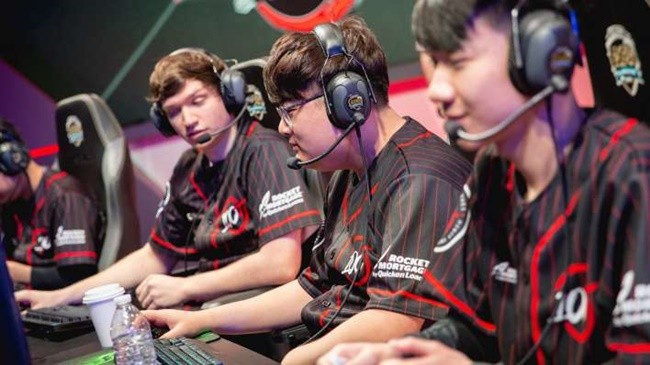
From the standpoint of the relationship between coaches and their players, there should be a sense of respect on both sides, right? For example, if you want a player to use a certain champion, but the player doesn’t agree, it can create conflict and tension. Or sometimes a coach who hasn’t played professional LoL doesn’t get as much respect from players compared to ex-pros who become coaches. How have you settled in and dealt with the flexibility of respect between the coach and the players?
Hm… I think it’s something that has to come kind of naturally and organically. A really important part of approaching the players for me is that I show how much effort and attention I’m giving to them so that they know they are not alone. So when it comes to champion picks and stuff, I want to make sure that it’s not just me demanding certain things from players, but us coming to a conclusion together. I think getting that respect as a coach is a lot easier if you’re working with them, instead of demanding them to do things. That was something I also struggled with as a player when it came to my coach- champion picks and strategies. I noticed how it was so much easier when we could come to a conclusion together, or find the answer together, or even be wrong together. So, I try to share as much experience with my players as I can- they see me fail a lot, and I see them fail, and no one’s always right, but we are just both working hard together. Showing them I’m working hard and together with them is really important.
What is your thought on the different coaching styles between the west and not only Korea but all of Asia?
Obviously, I’ve only heard stories of LCK coaches, but I know that they are able to be more demanding and more strict, and not necessarily negative, but I guess mean, kind of? I’ve noticed a lot of coaches are more positive and supportive in the west. I like the two different styles, and for me, it’s more about finding the balance between the two. I can’t coach them in just one style, but I do envy LCK coaches for being able to say ‘pick this champion’ and ‘do this’, and being able to get a response really quickly. But part of me is still uncomfortable to think that I’m smarter than every player on my team. So I like being able to find the balance between ‘I have an idea’ and ‘they have an idea’ because I can use five other brains to figure something out instead of demanding players to do as I want them to do.
Also, I’ve noticed so far that the balance between the Korean players and the western players is kind of funny because Korean players will often agree with me and just say ‘okay’. I want them to fight a bit, you know, disagree with me and tell me why I’m wrong. I want to be wrong, I want to be like, ‘show me, teach me’ so I know what they are thinking. But a lot of Korean players are really polite, saying ‘yes, okay’ and I have to pull them to tell me more, like ‘tell me I’m wrong’.
It’s the opposite with the western players since I have to pull them more or convince them more about why [they should do something]. It’s funny, the difference between the two, and I try to get the balance with all the players where we could both be wrong, both be right, and we kind of work together to find the answer.

We are both in agreement that there should be a balance on both sides. But there are times when a certain level of strictness is needed when it comes to… let’s say when you’re most definite that this time, this shot calling is better than another. So you’d want to guide, not necessarily enforce, but like, ‘hey, this is better’, showing them better results, etc. What are your opinions on the level of strictness a coach needs to have?
I think you can be less strict if you can establish a good relationship with your players because they don’t want to disappoint you or hurt you. But if you lose a bit of that respect, then it gets a lot harder. The only times that I have to be really strict is when we disagree about something, maybe shot calling or strategy. I usually blame myself when we are not getting a response out of them. I take it upon myself to find more information about why this is correct or more examples of why we should change this. Because it is easier to convince them if you can show a player you truly believe in this play and that they can do it well, but it’s not if you don’t truly believe this is the correct way and can’t make them believe that you’re right.
It’s a hard question to answer… For me, I think it’s persistence; that's what I equate to strictness. Instead of making them do something, I talk about it more and more and wear them down, because then, they’ll see eventually if I’m right. Hopefully. I try to make it as fast as possible, but I think you need to learn with them, instead of forcing it on them, to make or help them learn correctly. I don’t get more strict, I get more persistent.
So as you may know, a lot of recognized, famous, or very renowned coaches are mostly residing in Korea. I’m not saying there aren’t any good coaches in the west, but do you think there will ever be a time where the western coaching style will triumph over the Korean style of coaching?
I'd say no just because I think part of the problem with the western coaches right now is that they think they're good coaches already I think everyone in the west is very behind in coaching; they are just a lot more experienced in Korea right now. So trying to catch up when you're behind in experience and thinking that you're great or you won something hurts a lot of coaches. That mentality holds back a lot of western coaches.
Last question: is there anything you’d like to say to your team or fans that supported you so far?
I’m really surprised that I had so many fans that followed me to EU then back to North America. It makes me feel really good that people are focusing on… just…. I don’t know. It's just really interesting to me, I'd never have guessed… I mean, I wouldn’t follow me; I don’t think I’m that interesting (Laughs). So I’m really thankful for all that.
If anyone in Korea reads this, that’s awesome too. 감사합니다. Thank you so much!
Sort by:
Comments :0




